Picture
Your Present Location: HOME> PictureSymposium and report release ceremony on 20-Year of G20 Mechanism held in Beijing
The 14th G20 summit will be held in Osaka, Japan, and the G20, as the premier forum for international economic cooperation, has attracted worldwide attention. On June 23, a symposium with the theme of "G20 Osaka Summit and China's interests" and the report release conference on "20 years of G20 Mechanism: Evolution, Dilemma and China's Response" was held in Beijing. The meeting was co-hosted by the Chongyang Institute for Financial Studies of Renmin University of China (RDCY) and the magazine of Contemporary International Relations, and co-organized by the Research Center for Global Governance and the China-US people-to-people Exchanges Research Center of Renmin University of China.
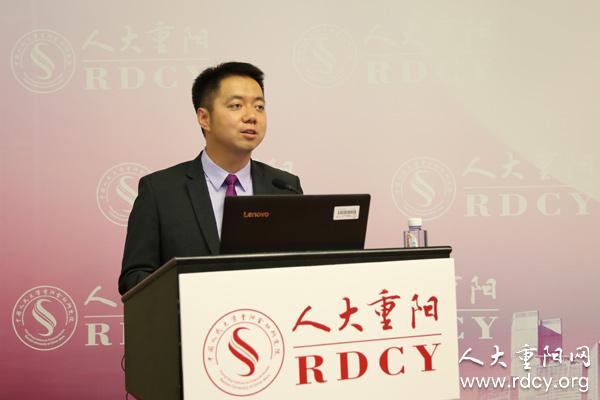
Wang Wen, executive dean of RDCY, said in his speech that the RDCY has been deeply involved in the G20 process since its establishment and has been designated by Chinese officials as the joint coordinating think tank for the 2016 G20 think tank summit (T20). He used the "first bucket of gold" to describe the relationship between the RDCY and the G20. “If a rich person need the first bucket of gold to get rich, the G20 research is the first bucket of gold for the RDCY as a think tank,” he said. He added that the G20 Hangzhou summit is a “coming-of-age ceremony” for China to participate in the process of global governance. After the Hangzhou summit, China began to stand at the center of the global stage, deeply involved in global governance as a responsible power.
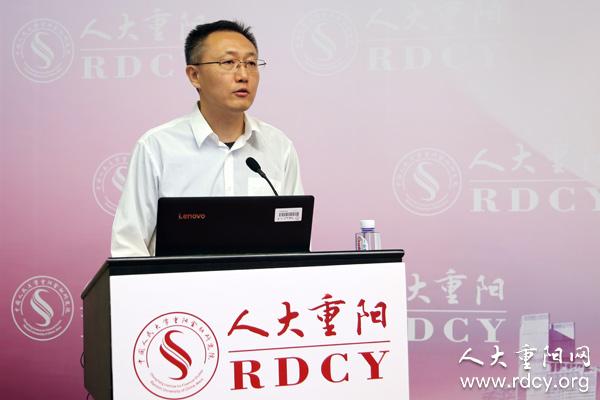
Wang Wenfeng, a researcher at the China Institute of Contemporary International Relations and editor-in-chief of the magazine of Contemporary International Relations, first congratulated the RDCY on the achievements in the field of G20 studies. He said that Contemporary International Relations, as a magazine focusing on international developments and foreign policy issues, has been devoted to demonstrating the in-depth thinking and wisdom of scholars and appreciated to publish the academic report of "20 years of the G20 Mechanism: Evolution, Dilemma and China's response" co-authored by Wang Wen and Wang Peng in the May issue.
Hu Haibin, associated dean of the RDCY, moderated the opening ceremony, and Jia Jinjing, assistant to the dean of the RDCY, issued the report in this session. On the basis of intensive research conducted over the past two years on G20 countries such as the United States, the European Union, Japan, India, and other important non-G20 countries, such as Iran and Pakistan, the report first reviews the achievements made in the 20 years since the establishment of the G20 mechanism, focusing on the logic of institutionalization construction and evolution after the G20 was upgraded to a summit in 2008, and then discusses the latest difficulties encountered by the G20 mechanism in the past two years. This report focuses on the international acceptance of the Hangzhou consensus and the latest challenges, and finally puts forward new Chinese ideas on how to implement the "Hangzhou consensus", further optimize the G20 structure and promote the reform of global governance.
He Yafei, former vice foreign minister and senior fellow of the RDCY, Zhang Yanling, former vice president of the Bank of China and senior fellow of the RDCY, delivered keynote speeches. Yang Qingqing, assistant dean of the RDCY, presided over the session.
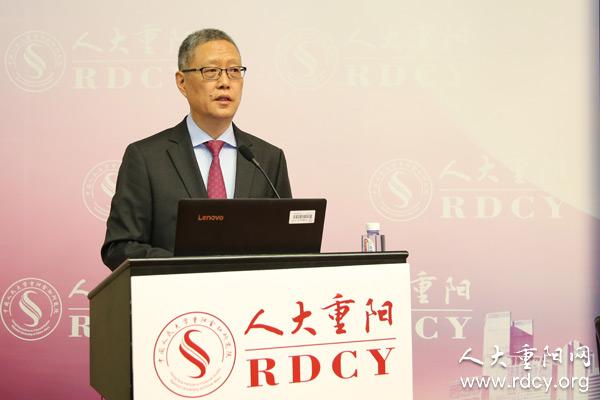
In his speech, He Yafei noted that in recent years, the chasms among the countries around the world have been expanding, the consensus on cooperation among major powers has been shrinking, the willingness to cooperate has also been reduced, and the suspicion, game, and competition among major powers have increased. Geopolitical and geo-economic contradictions have been intensified. The complexity, sensitivity or dangerousness of international relations have weakened the basis for the normal functioning of the G20. But no matter how the international situation changes, how the great powers relations entangles, how difficult the global governance is, China needs to persevere and strive to support the promotion of G20 to become the primary platform for global economic governance. He also hopes that the United States will assume the responsibility of a global power and continue to coordinated with China to push the G20 forward so that global governance is truly on a smooth track.
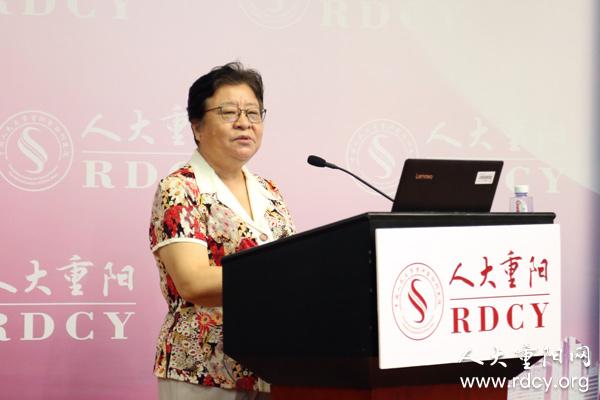
Zhang Yanling starts with the establishment and development of the global economic governance system. She said that by pulling out of the Paris Agreement, threatening to withdraw from the WTO, and provoking a trade war, the United States is actually putting aside its commitment to the G20. She stressed that we should seize the opportunity of the G20 Osaka Summit, provide China's wisdom, strongly urge the United States to abide by the consensus reached by the G20, and call on all countries to abide by the G20 commitments and safeguard the G20 credibility, which will help restore the order of world economic governance and promote global sustainable development.
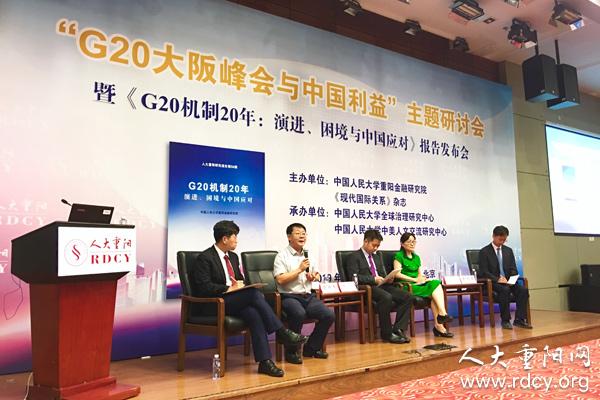
Then, hosted by Guan Zhaoyu, associated researcher of the RDCY, several experts including Zhang Shengjun, vice dean of School of Belt and Road Studies of Beijing normal University, Wang Wen, executive dean of RDCY, Sun Ru, research fellow of the China Institute of Contemporary International Relations and executive deputy editor of magazine of Contemporary International Relations, and Cao Mingdi, deputy director of Green Finance Department of the RDCY, discussed the topic of "G20 Osaka Summit and China's interests".
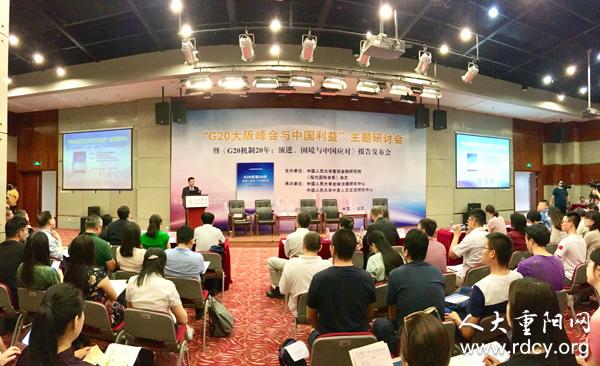
It is reported that the RDCY has published more than 20 books and reports related to the topic of G20, and the research results have received important instructions from Chinese leaders on many occasions. RDCY has established and operated the Global Governance Research Center, created a group of well-known G20 research experts at home and abroad, and built a global network of G20 research think tanks.























































































 京公网安备 11010802037854号
京公网安备 11010802037854号





